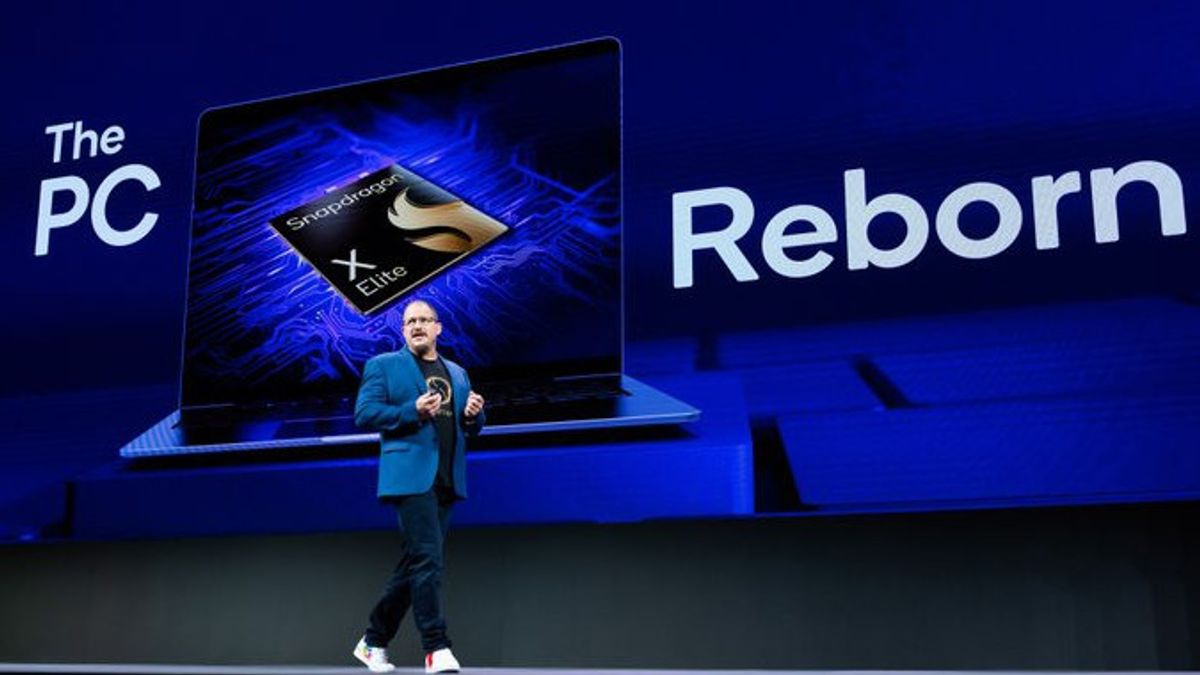Jakarta - A two-year legal battle between two tech giants threatens a new wave of personal computers powered by artificial intelligence. Executives from Microsoft, Asus, Acer, and others joined Qualcomm CEO Cristiano Amon on stage last week at the Computex annual exhibition at Taipei to promote a new generation of AI-powered PCs.
However, the conversation in the aisle, dinner, and at the time of drinking at the event focused on a contract dispute between Arm Holdings and Qualcomm, which is working together to create the chip that powers this new laptop, which could abruptly stop new PC shipments which are expected to generate billions of dollars for Microsoft and its partners.
Rough projections show that Microsoft expects to take up about 5% of the market with Arm-based laptops by the end of the year, selling about 1 to 2 million units. Nearly two dozen models from Microsoft, Dell, and Samsung are expected to be delivered to consumers by June 18.
Arm's win in this litigation could force Qualcomm and about 20 of its partners, including Microsoft, to stop sending new laptops. "This is really a real risk," said Doug O'Laughlin, founder of chip financial analysis firm Fabricated Knowledge. "The more successful the laptops are, the more Arm can finally get."
The British company, whose majority stake is owned by SoftBank Group Japan, sued Qualcomm in 2022 for failing to negotiate a new license after acquiring a new company. The lawsuit ranges from technology acquired by Qualcomm, a mobile chip designer, from a business called Nuvia founded by chip engineer Apple and purchased in 2021 for $1.4 billion.
Arm builds intellectual property and designs it sells to companies like Apple and Qualcomm, which they use to manufacture chips. Nuvia has plans to design a server chip based on Arm's license, but after the acquisition closes, Qualcomm shifts the remaining team to develop the laptop processor, which is now being used in Microsoft's latest AI PC, called Copilot+.
Arm said the current design planned for Microsoft's Copilot+ laptop was a direct technical derivative of Nuvia's chip and as this product is now aimed at laptops, it must be accompanied by a separate royalty rate.
"Arm's claim to Qualcomm and Nuvia is about protecting the Arm ecosystem and partners who rely on our innovative IP and design, and therefore uphold Qualcomm's contractual obligation to destroy and stop the use of Nuvia's designs from Arm technology," said spokesman Arm.
Qualcomm said that its extensive license to Arm technology already includes its PC chip, and a spokesman for Qualcomm said its position had not changed since Arm filed a lawsuit in 2022. The spokesperson referred to Reuters' statement in 2022. "Arm's complaint ignores the fact that Qualcomm has established broad licensing rights that include specially designed CPUs, and we believe those rights will be confirmed," said Ann Chaplin, Qualcomm's general adviser.
SEE ALSO:
In addition to this legal dispute, there is another level of complexity as exclusive deals to supply laptop makers with their chips expire this year, opening up markets for Qualcomm competitors. Nvidia and Advanced Micro Devices (AMD) are working on chips. Another design company will join forces and manufacture chips for Microsoft's new efforts," industry executives said.
However, due to the initial batch of Windows designs for Microsoft's new Copilot+ laptop program based on Qualcomm processors, this litigation is an existing background but is often not mentioned in public.
While there is a public battle between two companies relying on each other for revenue and profit, some investors and analysts believe they will reach a settlement long before the trial, which is scheduled to begin in federal courts in Delaware in December.
"There is an amplitude level Arm suing the second-largest customer, and Qualcomm is sued by its biggest supplier," said Jay Goldberg, CEO of D2D Advisory, a financial consulting firm and strategy.
The English, Chinese, Japanese, Arabic, and French versions are automatically generated by the AI. So there may still be inaccuracies in translating, please always see Indonesian as our main language. (system supported by DigitalSiber.id)


















